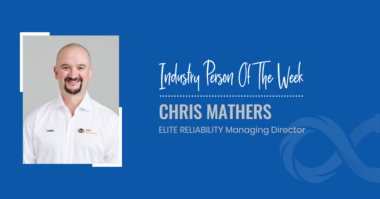In October 2017, Steve Hernandez (one of our Pump Persons of the Week) was interviewed about careers in the Water Sector (watch the interview above).
Here is a recap of his tips for a career in the water sector:
1. Understand your skill set & interests. There are so many ways you can be part of the water industry. You can be an engineer, you can be the person that fixes water mains out in the middle of the street, you can be a traffic control adviser, a backhoe operator, a treatment plant operator, or somebody in the lab – the water industry is a hidden gem where there are positions that match people’s passions! If you know what interests you and what talents you have, you can build a career that you love.
2. Don’t be afraid to start at the ‘Ground Up’ & Build Relationships. Take a plant tour, volunteer or be an intern – don’t be afraid to do what some may consider “basic” or “laborer” jobs. While they may be a little tough starting out, and some may not pay well, it helps to get your foot in the door and allows you to get to know people in the industry. Building relationships are important for working your way up.
3. Be patient & work hard. Promotions will eventually come your way, but only if you are patient and work hard! It’s going to take some time. I remember being in ditches that were full of water, trying to put pipe clamps on a pipe. It was miserable! It had been in the beginning of January, and I just couldn’t wait to go home, but I grew as a person throughout those experiences. I eventually became a treatment plant operator running a treatment plant that serves 11 different cities (and I was the lone operator!). Look at challenges as a positive learning experience – I guarantee it will come back to benefit to you!
4. Learn & Exercise what you Learn. Not only can you learn on the job, but check your local college to see if they have a water technology program, so you can get an education in water or wastewater. For example, the California State Water resource control board controls the certified operator program, so there are classes that can help you prepare for those exams. These exams are typically offered quarterly, and having this education and certification will help you as you apply for jobs in the water sector. It’s really nice to see somebody that might not have the background in construction or plumbing, but has taken a class or has taken the D1 (distribution grade 1 certification) as an ‘intro’ to the industry. It shows that the person is interested in and is trying to invest in their career before even getting a paycheck.
5. Work at the level above you. If you’re able to do more than the duties you’re hired for, it is important to show senior staff and management that you are willing to go ‘above and beyond’. The last of the boomers are leaving, and there is a huge gap of information and skill set that is leaving out the door. We are trying to hold onto them as long as we can because we are trying to pick their brain and carry that over to the new people that are coming on board. I think I have 17 professionals on my team, and I’d say 5 of us have more than 5 years of experience; the other 12 of us have about a year of experience or less. And that’s just in the water industry! So it’s really important to learn from the people on your team so you can work to that higher level.
If you have any questions about a career in the water sector, connect with Steve Hernandez @WaterWisePro or post in the Empowering Pumps Industry Forum.



